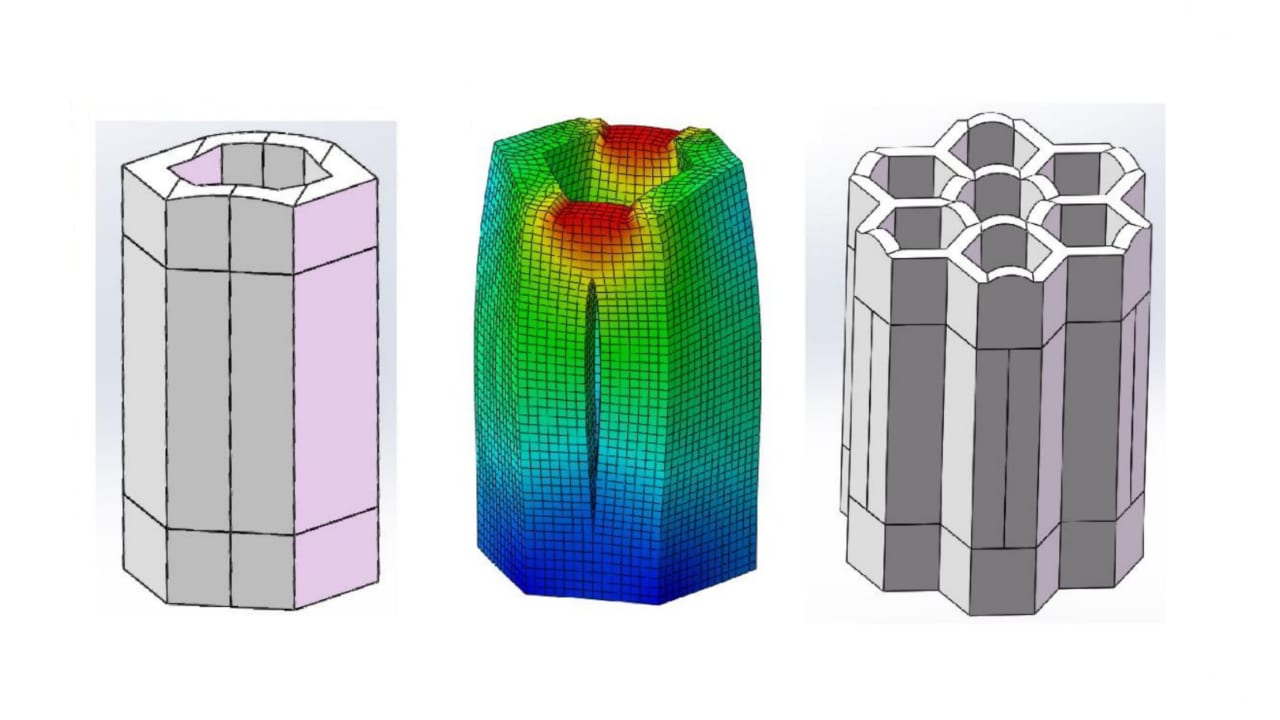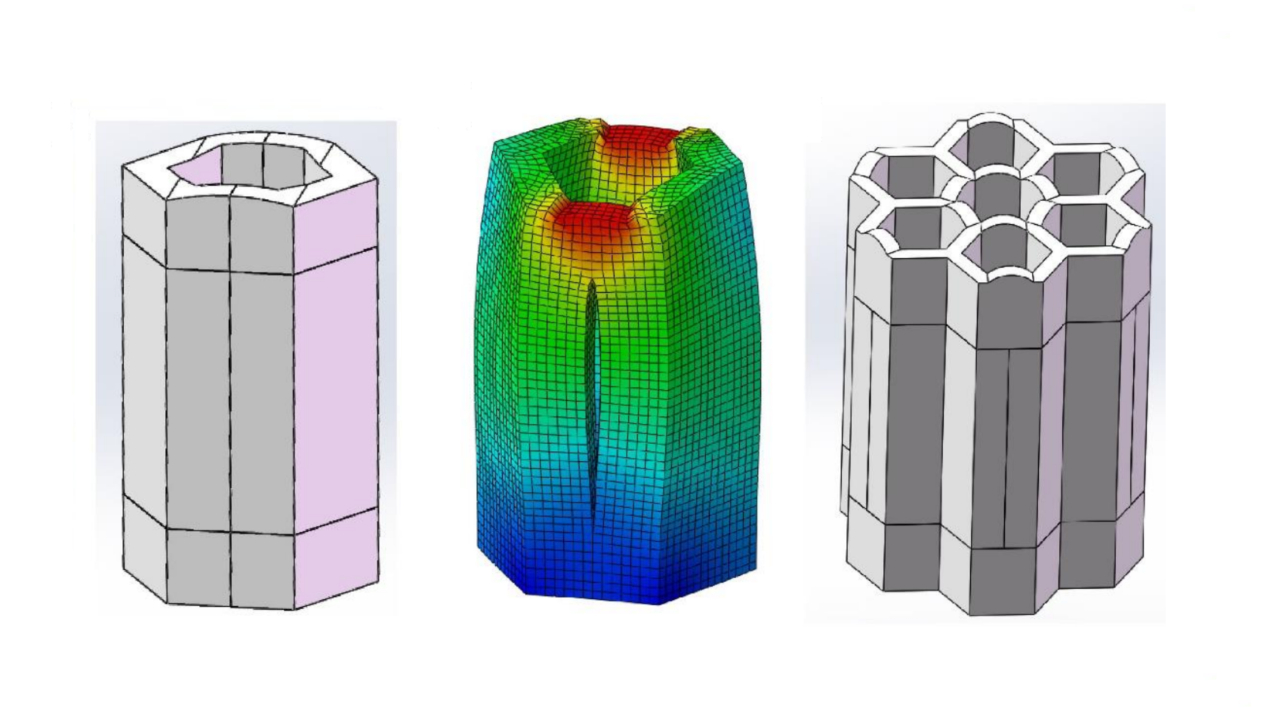Chinese scientists have developed a new strategy for large-scale fabrication of bio-inspired artificial wood that manifests lightweight and high-strength properties with the mechanical strength comparable to that of natural wood. A study
published on
Friday in the journal Science Advances described the high-performance polymeric materials with wood-like cellular microstructures. A research team led by Yu Shuhong from the University of Science and Technology of China (USTC) transformed traditional phenolic resin and melamine resin into the artificial wood-like materials by self-assembly and the thermocuring process, Xinhua
reported
. Their strategy provided a new route to fabricate and engineer a wide range of high-performance biomimetic engineering composite materials with desirable multiple functions and advantages over the traditional counterparts, having broad potential applications in many technical fields. [caption id=“attachment_4953951” align=“alignnone” width=“1280”]
 Simulations of model bio-inspired structures replicated in the study. Image: Publication in Science Advances[/caption] The liquid thermoset resins were firstly “unidirectionally” frozen to prepare a “green body” with the cellular structure, followed by the subsequent thermocuring to get the artificial polymeric woods. They are highly controllable in the pore size and wall thickness. Starting from aqueous solution, the strategy also represented a green approach to prepare multifunctional artificial woods by compositing various nanomaterials, such as cellulose
nanofibers
and graphene oxide, according to the study. Compared with natural woods, the artificial woods have better corrosion resistance to water and acid with no decrease in mechanical properties. They also have better thermal insulation and fire retardancy. The artificial polymeric woods stand out from other engineering materials such as cellular ceramic materials and aerogels in terms of specific strength and thermal insulation properties. As a kind of
biomimetic engineering
materials, this new family of bio-inspired polymeric woods is supposed to replace the natural wood when used in harsh environments, Yu said.
Simulations of model bio-inspired structures replicated in the study. Image: Publication in Science Advances[/caption] The liquid thermoset resins were firstly “unidirectionally” frozen to prepare a “green body” with the cellular structure, followed by the subsequent thermocuring to get the artificial polymeric woods. They are highly controllable in the pore size and wall thickness. Starting from aqueous solution, the strategy also represented a green approach to prepare multifunctional artificial woods by compositing various nanomaterials, such as cellulose
nanofibers
and graphene oxide, according to the study. Compared with natural woods, the artificial woods have better corrosion resistance to water and acid with no decrease in mechanical properties. They also have better thermal insulation and fire retardancy. The artificial polymeric woods stand out from other engineering materials such as cellular ceramic materials and aerogels in terms of specific strength and thermal insulation properties. As a kind of
biomimetic engineering
materials, this new family of bio-inspired polymeric woods is supposed to replace the natural wood when used in harsh environments, Yu said.
A scaleable new method of making artificial wood from synthetic resins
Indo Asian News Service
• August 13, 2018, 13:32:08 IST
The artificial woods are more corrosion- and water-resistant, with similar mechanical properties.
Advertisement
)
End of Article